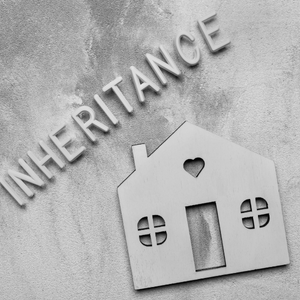
When it comes to selling an inherited house in Springfield, OH, specific challenges and opportunities emerge. Merely considering Springfield real estate and Ohio legal issues is insufficient, especially if you are weighing your inherited property options. Here is a complete guide to selling this type of property; the guide is structured to include the most critical information to help you sell your property while attending to issues that are most likely to save you the maximum value for your property. We analyze the most appropriate selling strategy for the property, considering the complexities of the probate issues. We focus on the selling issues specific to the housing market in Springfield to provide you with the information you need to sell inherited property. For a simpler option, Comfort Living Buys Houses can help you navigate these challenges and sell your inherited house with ease.
Key Highlights
- Understanding Ohio’s inheritance laws is crucial for selling inherited property smoothly.
- Legal complexities include navigating probate processes and potential taxes like capital gains tax.
- Property improvements and strategic pricing are key to maximizing an inherited home’s market value.
- Weighing traditional listings against quick sales depends on your financial needs and timelines.
- Handling multiple heirs requires clear communication to prevent conflicts and ensure smooth sales.
Understanding Inheritance Laws in Ohio
Understanding Ohio’s inheritance laws is essential for anyone wishing to sell an inherited property in Springfield. This involves understanding the system’s probate and ownership complexities for inherited property. Also, discerning the system’s intricacies from a financial perspective, including the attorney’s fees and capital gains taxation, is critical. Knowing the system’s legal and financial intricacies will ensure the smooth handling of the transition for inherited property. This article serves to educate prospective property sellers on the fundamental legal issues pertaining to the selling of inherited property and the issues of ownership rights associated with it.
Key Legal Aspects of Selling Inherited Property

Selling inherited property in Ohio involves certain legal steps concerning the probate process. This process involves the verification of the will and the granting of executor powers that allow the executor to take control of the property and allocate the estate to the different beneficiaries. This includes paying debts like mortgages and property taxes before a house can be sold. The probate process can become costly and time-consuming, with court involvement and attorney fees diminishing the estate’s overall value, but jointly owned property with survivorship rights might be able to skip this process. Executors confirming ownership and clearing obligations, and obtaining court approval where necessary, means that heirs need to be aware of these steps. An experienced real estate attorney can help simplify the process and mitigate risk while preparing the property for sale and ensuring compliance with Ohio’s probate laws.
I wish to emphasize that selling an inherited property may lead to numerous tax consequences. Capital gains tax applies to the increase in value of the property and may considerably reduce the profit from the sale. Recognizing the step-up in basis—where the property’s basis value is adjusted to the date of inheritance—can reduce the potential capital gains tax liability. Such complexity highlights the need to obtain professional help in the optimal management of these financial commitments. The value of an inheritance may be taxed, and the transition into the property market may be the most rewarding phase of the whole process. While addressing the legal dimensions of inherited property in Ohio, keep in mind these actionable suggestions:
- Consult a probate attorney to understand Ohio’s probate laws and processes for inherited property.
- Obtain a legal title for the property through the probate court to facilitate a smooth transaction.
- Evaluate the property’s value with a professional appraisal to set an appropriate sale price.
- Resolve any outstanding debts attached to the property, including mortgages or liens, before listing it for sale.
- Consider tax implications, such as capital gains tax, and consult a tax advisor for guidance.
- Hire a real estate agent experienced in inherited properties to market and sell the property effectively.
- Communicate transparently with other heirs or beneficiaries to prevent disputes during the sales process.
Following these steps can ensure a legally compliant and efficient sale of your inherited property in Ohio.
Determining Ownership Rights in Ohio
In Ohio, determining ownership rights when selling an inherited house is of fundamental importance. The clarity of rights impacts a sale, especially when there are numerous heirs. Determining ownership initially involves reading the will, if one exists, to ascertain named beneficiaries and property grievances. If a will does not exist, Ohio intestate succession laws regulate the division of property to the heirs and prioritize close relatives and/or a surviving spouse. You can also sell your home for cash in Beavercreek or nearby cities for a faster resolution if multiple heirs agree. The way a property deed is titled, such as joint tenancy versus tenancy in common, is significant in determining how and what rights are transferred to heirs.
An important aspect of determining the legal right to sell an estate is the ownership title certificate. The certificate positively establishes the legal right to sell the property and reassures potential buyers of unencumbered legal ownership. Ohio laws regulating the sale of homes and real estate hinge on seamless title transfer and the removal of disputes surrounding the title. Estate administrators must ascertain that there are no encumbrances on the title. Otherwise, potential market value, buyer perceptions, and the time it takes to sell will be adversely affected.
The laws of Ohio require additional consideration of the debts associated with the property, particularly mortgages, which may need to be paid off before the property is sold. Additionally, mediation to manage and resolve disputes among multiple successors is advisable, particularly concerning the role of mediation, to avoid log-jamming the process. For this reason, pre-sale inheritance schemes that avoid the court are helpful.
Moreover, understanding how the owner affects pricing prior to selling inherited property can be established through the collection of market trend information within Ohio. This information allows the seller to utilize the MLS system effectively, ensuring that property is advertised at a level that is competitive within the market. Engagement in these activities not only ensures compliance with the law but is also likely to maximize the seller’s profit. Overall, it provides a favorable and efficient method for transitioning inherited real estate.
| Legal Processes | Ownership Considerations | Financial Implications | Recommended Actions |
|---|---|---|---|
| Probate proceedings are often required unless property is jointly owned or set in a trust. | Ownership is determined by wills, survivorship rights, or intestacy laws if there is no will. | Conduct a thorough property assessment to understand the market value before listing for sale. | Consult with an estate attorney and financial advisor to navigate the probate process and assess property value. |
| Small estates may qualify for simplified or expedited probate processes. | Potential costs include attorney fees, court costs, and valuation fees, along with estate taxes, if applicable. | The executor must account for estate expenses before beneficiaries receive their shares. | Income taxes may apply to the sale of the property, subject to capital gains rules. |
| The executor is responsible for managing and distributing the estate according to legal directives. | If multiple heirs are involved, buyout agreements or partitions may be required. | Additional costs may include maintenance fees, property taxes, and repairs. | Negotiate with co-heirs for sale or alternative solutions to maximize benefit. |
| A title search may be necessary to confirm any encumbrances or liens. | Clear determination of ownership is crucial for clear sale rights. | Executor must account for estate expenses before beneficiaries receive their shares. | Consult with tax professionals to understand implications and explore possible deductions. |
This table encapsulates the multifaceted nature of selling inherited property in Ohio, from legal intricacies to financial strategies.
Navigating Estate Taxes When Selling Inherited Property in Springfield OH
When selling inherited property in Ohio, understanding estate taxes is very important. They impact how much money you take home after selling the home. Understanding taxes gives the seller the ability to work in the real estate market while keeping records to prove the obligations were paid. This answers how they are calculated in Ohio, and how to minimize the tax liability. Sellers can improve the selling experience by understanding taxes and maximizing the tax liability to relieve the burden that comes with selling inherited property.
Calculating Estate Taxes in Ohio
Selling an inherited property in Ohio means assessing the estate tax. At this point, an estate cannot be taxed at the state level in Ohio and may not be taxed at the federal level, depending on the value of the estate. To begin assessing an estate, one must calculate the gross value of the estate, which includes the property along with other assets, like bank accounts, investments, and personal property. The estate value can be reduced by allowable deductions, which include property tax assessments, fees paid to the estate attorney, costs of probate, and any debts associated with the estate. The seller also needs to consider the capital gains tax, which is the profit on the new value of the property above the value at which it was purchased. The capital gains tax is eliminated when the property value is reset to the value at the time of the owner’s death. This is referred to as the step-up in basis rule.
To reducing potential liabilities, proper strategies and thorough documentation should be completed. Sellers should recognize all deductible sale-related expenses, like realtor commissions or repairs, to claim expenses and reduce the taxable amount. Estate planners and tax advisors who practice in Ohio real estate and federal estate taxes should be consulted to calculate and document tax liabilities in a manner compliant with IRS rules. With proper documentation, sellers can ensure more value is preserved in the estate for beneficiaries instead of being lost to taxes.
Strategies to Minimize Estate Tax Liability in Springfield OH
In Ohio, planning to reduce estate tax liability when disposing of inherited real estate is crucial, as it involves careful use of tax avoidance techniques. One such technique is the step-up in basis, which equalizes the tax basis of the property to the fair market value at the time of the owner’s death. This greatly minimizes the capital gain tax liability at the time of sale. To realize this value, heirs need to order a professional appraisal, which serves as proof of the property’s market value. Sellers may reduce the taxable estate via the deductions of realtor commissions, legal fees, repairs, and other expense deductions. This is on top of the fact that many estates remain below the federal estate tax exemption, which is a relief as far as federal estate taxation is concerned.
Estate tax exposure might also be decreased through more sophisticated methods of strategy gifting and trust formation. Here, gifting refers to the pre-death transfer of a portion of an estate. Should estate values be reduced to a level that falls below the taxable amount, this approach, which edges tax on an estate, would be appropriate. It is also important to mention that this is a strategy that should be employed with caution, as laws and regulations set by the Internal Revenue Service must be adhered to. Other estate tax avoidance strategies also include the creation of a trust, as they offer more control of the distribution of the estate and offer tax benefits, especially with a large estate. These methods of estate tax planning, avoidance, and reduction strategies should be employed by estate tax planning professionals to avoid unintended negative consequences. Focusing on a step-up basis, exemptions, and deduction strategies with tax and real estate professionals, sellers can enter the market with the property, reduce tax on the estate, preserve estate value, and improve the flow of property.
Evaluating Your Inherited House: Prepare for the Market
To optimally prepare an inherited house in Springfield, Ohio, for the real estate market, certain steps must be taken. Each property transferred through inheritance should be evaluated on its own merits, and tailored improvement recommendations should be made. Certain improvements increase home values more than others, so determining the most appropriate value is key. For the best sustained return, improvements should be coupled with appropriate pricing. Your improvements prepare the home for prospective buyers, but in order to complete the value improvement, market analysis is also needed to evaluate the improvement pricing. Marketing and improvements build the foundation for a successful sale. I will evaluate and outline the most critical improvements.
Essential Property Improvements for Ohio Home Sellers

Determining an appropriate price for your inherited house in Ohio is fundamental for a smooth process and a favorable result. This starts with a detailed understanding of the Springfield real estate market. This can include a competitive market analysis and a professional appraisal. These assessments look at the size, age, condition, improvements, and location of the property. Larger backyards, location near schools, or distinct historical character can add value and justify a higher price. It is critical to find a value that will attract interest while shielding the estate’s financial return.
For a more effective approach to setting a price, the insights of an experienced Springfield area realtor will be vital. Experienced agents have a grasp of market trends in Springfield, demand from buyers, and the psychological aspects of pricing. They can help in setting your asking price and whether changes to the price range are necessary to attract buyers. Sellers should calculate the net proceeds of the sale by including capital gains taxes, closing costs, attorney fees, and commissions. This is to ensure that the base price is not just an attraction for buyers but also aligned with the seller’s financial return.
Lastly, sellers can develop adaptive approaches based on their goals. If there are significant repairs needed, selling the property “as-is” can attract investors and cash buyers. Also, pricing a property a little higher than expected can allow for some negotiations and create a psychological sense of worth for buyers. Timing can also impact demand—selling during the peak of the real estate season will likely yield better offers and stronger demand. Having an accurate assessment, a real estate expert slated for a particular role, and a clever strategy will allow you to position your inherited property to ensure it goes quickly, while also ensuring you capture its full potential value.
Setting the Right Price for Your Inherited House in Springfield OH
To sell an inherited house in Ohio, first, determine the best price and carry out the appropriate valuation steps. The seller will need to analyze Springfield’s real estate market and conduct a competitive market analysis and professional appraisal, considering the size, condition, location, and improvements made to the house. Additional attributes like a spacious yard, closeness to schools, or quaint, historically-accented features could be grounds for a higher price. The goal will always be to find the middle ground. Be competitive in pricing and still return a reasonable amount to the estate.
Having a knowledgeable realtor provides ease to the process. They present the latest marketing trends and help the seller find a realistic price. Sellers should be mindful of capital gains taxes, closing fees, and commissions as part of the seller’s exit price to understand the net proceeds. Subtle strategies closing the listing for a quick sale like listing the house at a “as-is” condition for fast cash or to wrap up negotiations faster and fill the auction range are selling advantages. Pricing won’t be the only factor determining the ideal sale if it meets the seller’s goals.
Exploring Different Options for Selling Inherited Property
If you must sell inherited property in Springfield, Ohio, you have many options, each one impacting your ability to sell successfully in the Springfield, Ohio, real estate market. By weighing a traditional real estate listing against a quick cash sale, you can determine which option best fits your objectives, both financially and in terms of how long you are willing to wait. You can also sell your home for cash in Springfield or nearby cities for a faster and more convenient process. Each option also has its own specific drawbacks that must be considered. Furthermore, the property must be sold in a manner that best reduces estate taxes while retaining the property value for your heir, accounting for the legal and financial factors present in Ohio.
Traditional Real Estate Listings vs. Quick Sales in Springfield OH
Deciding between quick sales and traditional listings for inherited property depends largely on the seller’s priorities, which usually include time, cost, and convenience. While real estate agents list the property on the MLS, which exposes the property to a wider pool of buyers, selling at the MLS would take longer, as more time, value, and effort would need to be invested in things like necessary repairs, staging, and showings. More time translates to more costs in the form of real estate commission, legal fees, and even taxes after the sale. However, for sellers who want to take value to its maximum, traditional listings usually take longer but are worth the effort for the difference in profit.
Quick sales, in contrast, are about turning a profit as quickly as possible with little to no effort, usually involving cash buyers and investment companies. As a result, the quick seller’s sale price is lower than what would be expected on a traditional listing, as quick sales are far more predictable (that is, there are no repairs, no drawn-out negotiations, and sellers can expect closing to happen in under a week). This method is most profitable when there are unsatisfied heirs, probate delays awash with necessary and tacky cash balances, or if the property is unlovely in its present condition. The choice primarily comes down to whether the seller wants to take as much value out of the property as possible or whether the seller wants to take as little time and effort as possible, while losing value on the sale.
Considerations for Selling Inherited Property in Ohio
Selling inherited property in Ohio requires thoughtful strategic planning to address the legal and financial aspects involved. One of the first hurdles to overcome is the probate process. It legally controls how ownership gets transferred and can become an obstacle if the property is not sold and passes through probate. Properties can also avoid probate through arrangements such as joint tenancy with the right of survivorship. Taxes, especially the capital gains tax, also play an important role. These taxes are usually triggered by the property value at the time of inheritance due to the step-up in basis rule. Value at inheritance reduces capital gains tax liability to an extent. However, sellers should consider other taxes due, estate taxes, debts and liens associated with the property, the legal fees, property improvements for the sale, and other deductions, as they are likely to complicate the tax scenario.
Disagreements among co-heirs are common in inherited property situations and may require mediation and legal contracts if there are diverging views on selling or retaining the property. Understanding the local real estate market and pricing property competitively is important if the goal is to sell quickly. Attention to pricing, marketing, and preparation of necessary documents, including title and ownership records, is important in the efficient sale of property. Legal, tax, and market issues in selling inherited property are directly correlated to the smoothness and economic efficiency of the sale.
Addressing the Challenges of Selling Inherited Property in Springfield OH
Selling property in Ohio, particularly in Springfield, necessitates assessing and packing the challenges intelligently and strategically. The presence of multiple owners and disagreements within an estate may complicate decision-making and necessitate the involvement of attorneys to amicably resolve the estate. Beyond the law, the emotional side of liquidating family property will inevitably impact the decision-making of all sellers and must be managed. The good news is that when the challenges are addressed with the right resources and preparation, the transaction is likely to be completed smoothly, family relationships are likely to be preserved, and the property’s value in the marketplace may even be maximized.
Handling Multiple Owners and Estate Disagreements
When a property undergoes succession in Ohio, potential disagreements among the heirs will likely surface concerning the sale, leasing, or renovation of the property. These disagreements arise from unclear estate settlements, disparate opinions regarding the value of the property, and disagreements about the distribution of costs. Taking a proactive approach will minimize the potential for conflict. First, consulting with an estate attorney will create the necessary legal framework and identify each heir’s rights and responsibilities, thereby minimizing ambiguity regarding who has the legal authority to make decisions. Establishing communication, whether via family meetings or other forms of mediation, is crucial for providing a consensus to avoid or minimize conflict. Another potential conflict-minimizing mechanism is the development of a written agreement that identifies and divides the roles and responsibilities of each member.
Another common dilemma is establishing the property’s market value since heirs often have conflicting opinions regarding the worth of the home. The involvement of a professional appraiser or real estate agent will provide objective assistance and help the family determine a reasonable price based on prevailing market conditions. Heirs must also be mindful of the attorney fees, estate taxes, repairs, and other costs of the property and the future capital gains taxes that will be owed on the property. Leaving gaps in the account of these expenses will blind the parties to the selling costs that must be covered. Families will be in a better position to manage the financial and relational consequences of inherited property disputes when there is open dialogue, a well-defined strategy, professional assistance, and effective communication.
Coping with Emotional Aspects of Selling a Family Property

Selling an Ohio family property entails emotional challenges as homes are often tied to memories and past experiences. These attachments are sometimes the source of indecision, family disputes, and obstacles in selling the property. To mitigate emotional challenges, it has to be acknowledged, rationalized, and open communication must be facilitated. These challenges may be the starting points for family members to converse and come to a consensus regarding the property’s salient points and its possible future. In such a case, the family, while selling the property, may transition and honor the home’s heritage and legacy.
When focusing on selling a property, it may be emotionally beneficial to hire a real estate professional. They may provide the emotional distance required in family disputes to focus on sale conditions and monetary objectives. They may help direct family attention toward sale conditions instead of focusing on emotional and sentimental attachments. Reducing emotional distress may be facilitated by descriptive assistance stereotypes. These strategies, along with reframing the emotional aspect of the sale, may provide families with calm financial objectives. Olfang and Bors claim this may help balance emotional distance and closure to rationalize the sale.
FAQS
What are the legal complexities involved in selling an inherited house in Springfield, OH?
The selling of a house in Springfield that has been inherited entails understanding probate, ownership rights, and liabilities like capital gains taxes. These legal intricacies need to be understood in order to facilitate the transaction seamlessly.
How can property improvements affect the sale of an inherited home?
Strategic areas for improvement—such as kitchen and bathroom renovations, curb appeal enhancement, and the implementation of energy-efficient technologies—will improve your home’s value and market attractiveness exponentially.
What is the importance of accurate property pricing in Springfield’s real estate market?
An in-depth market analysis guarantees precise pricing within the competitive range so that the target audience is reached and the returns are reasonable. Attention to local market dynamics is, however, important.
What are the challenges when multiple heirs are involved in selling inherited property?
Conflicts can arise amongst multiple heirs concerning the management of the estate, including decisions surrounding the sale of the estate. Communication, in conjunction with the guidance of legal professionals, facilitates conflict avoidance and ensures the sales process proceeds smoothly.
What are the options for selling an inherited property in Springfield, OH?
Sellers must decide if they want a higher sale price with traditional listings or if they want a quick sale for a more rapid conclusion. Each option must be weighed against one’s financial objectives, time limitations, and overall marketplace situations.
Do you need to sell an inherited house? Whether you want to sell quickly, avoid costly repairs, or prefer a hassle-free process, Comfort Living Buys Houses is here to help. We provide fair cash offers, take care of all the details, and make the sale simple and stress-free. Ready to sell or have questions? Contact us at (937) 915-3737 for a no-obligation offer and get started today!
Helpful Springfield Blog Articles
- Sell Your Water-damaged House In Springfield, OH
- Addressing Tenant Property Damage In Springfield, OH
- Quitclaim Deed For Real Estate In Springfield, OH
- Selling Your Springfield, OH, Home With Asbestos
- Navigating House Sales With Liens In Springfield, OH
- Selling Half Of Your House In Springfield, OH
- Average Cost to Sell a House in Springfield, OH
- How Long After an Appraisal Can You Close in Springfield, OH
- How to Sell an Inherited House in Springfield, OH
- How to Sell a House with Title Issues in Springfield, OH
- How to Sell an Investment Property in Springfield, OH
- Capital Gains Tax After Selling a House in Springfield, OH

